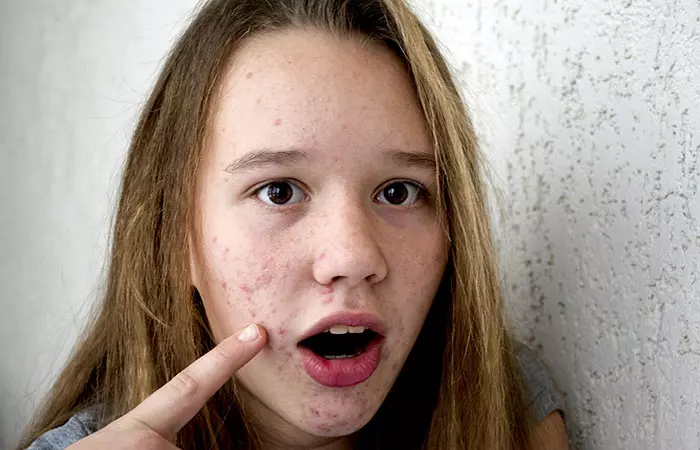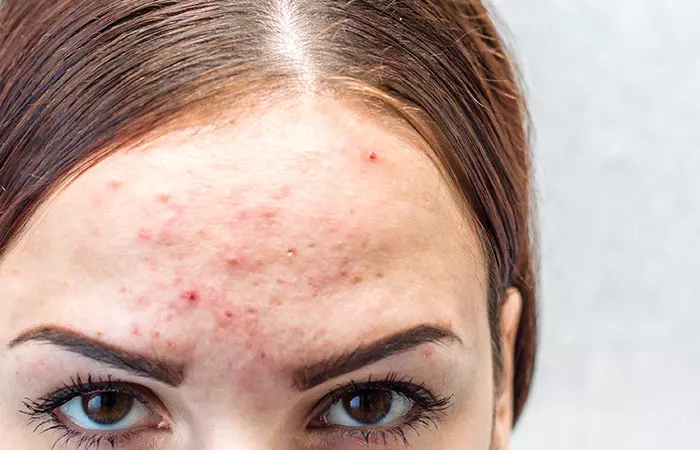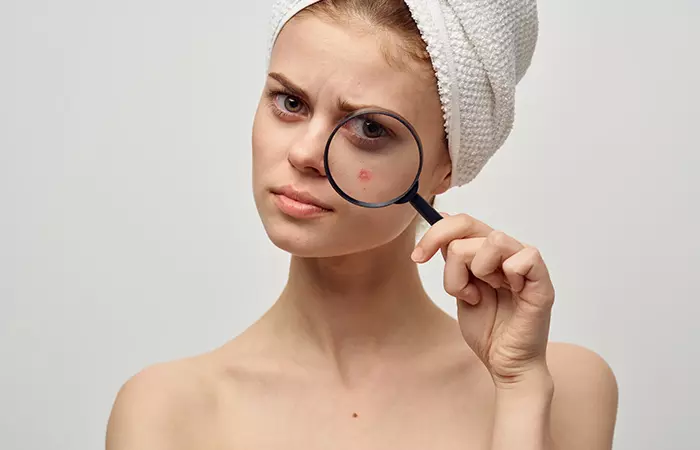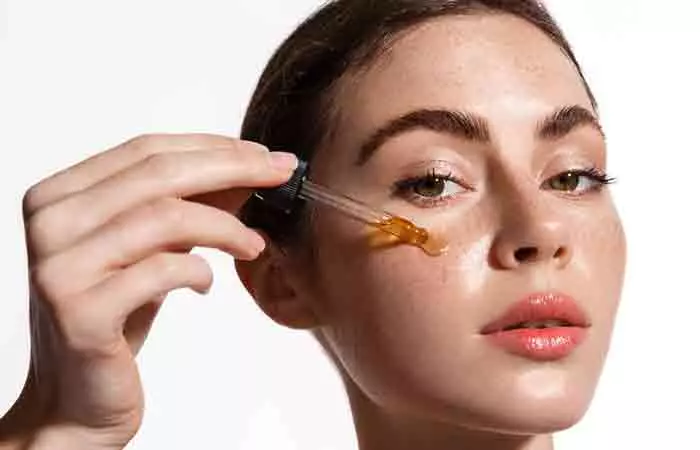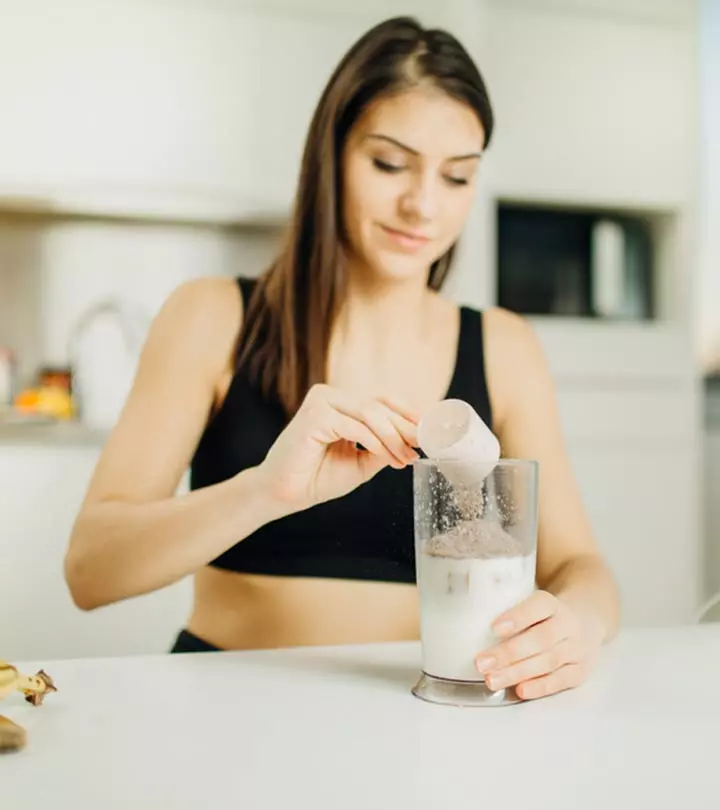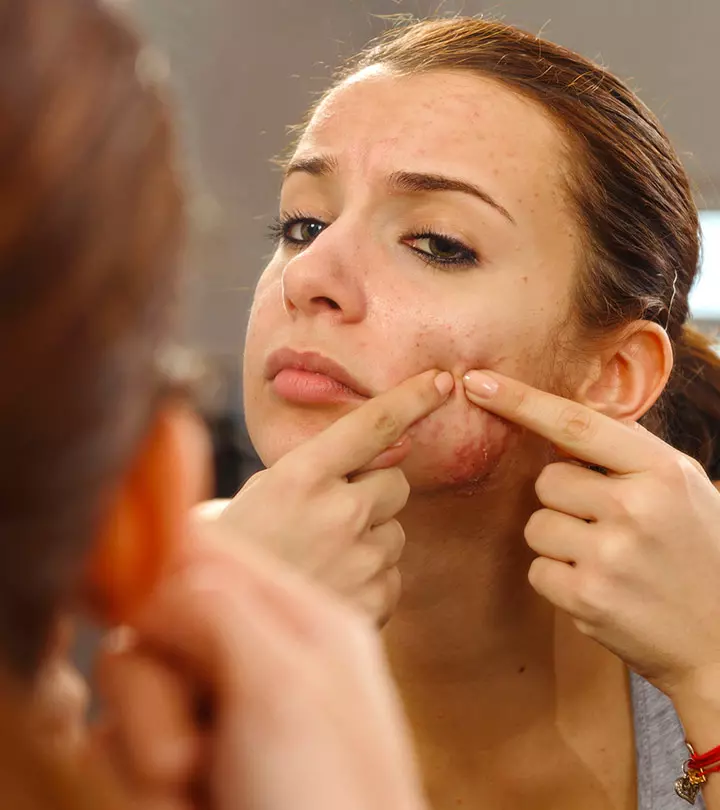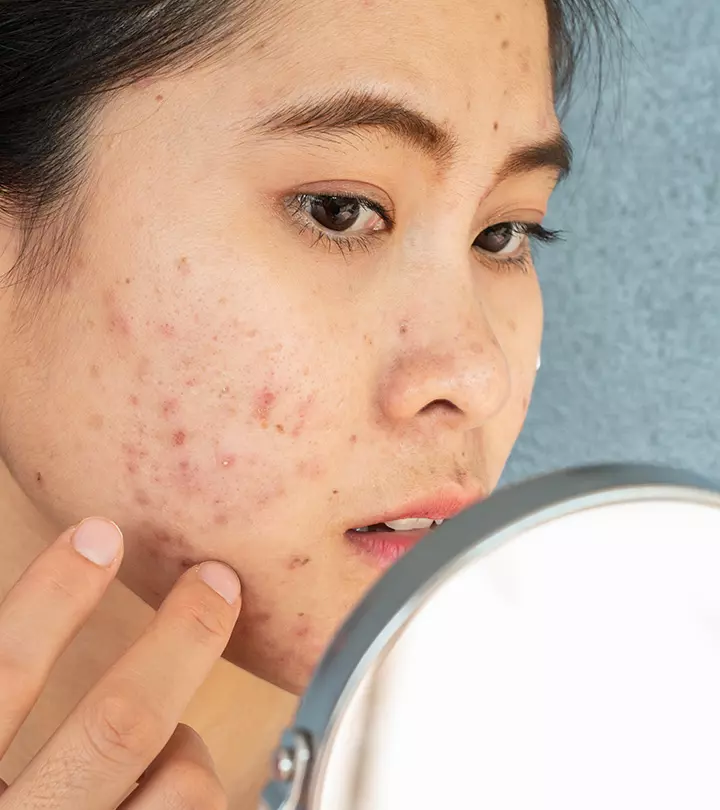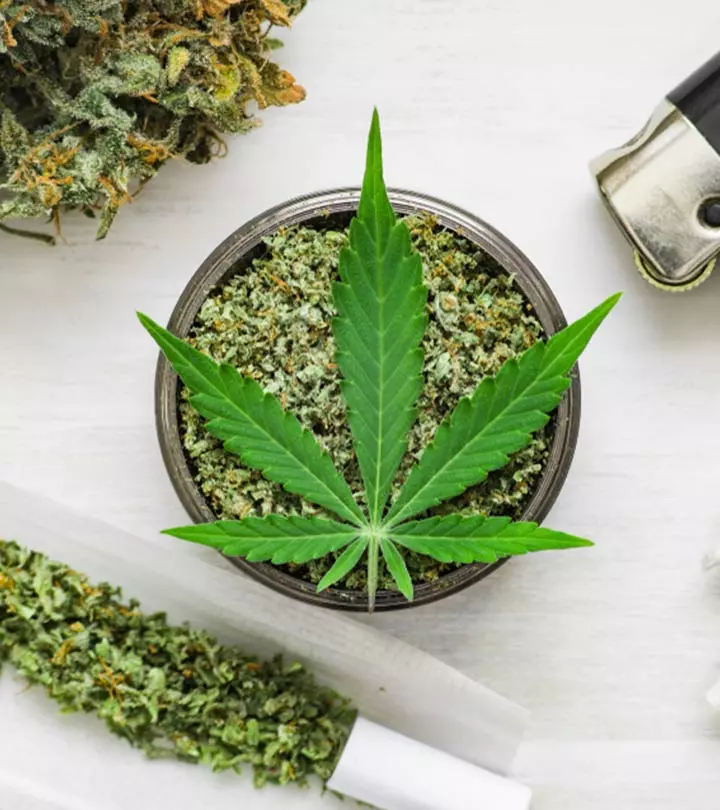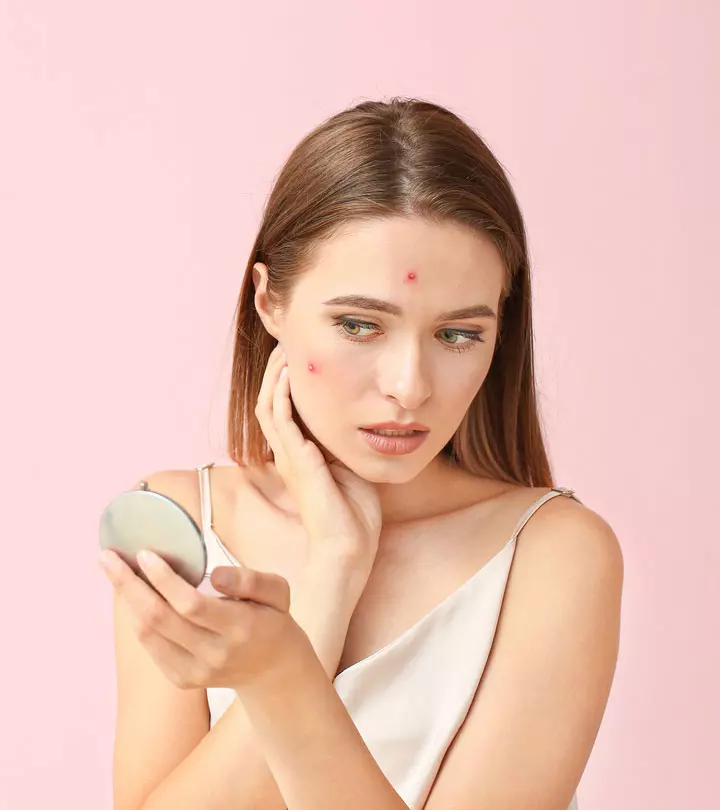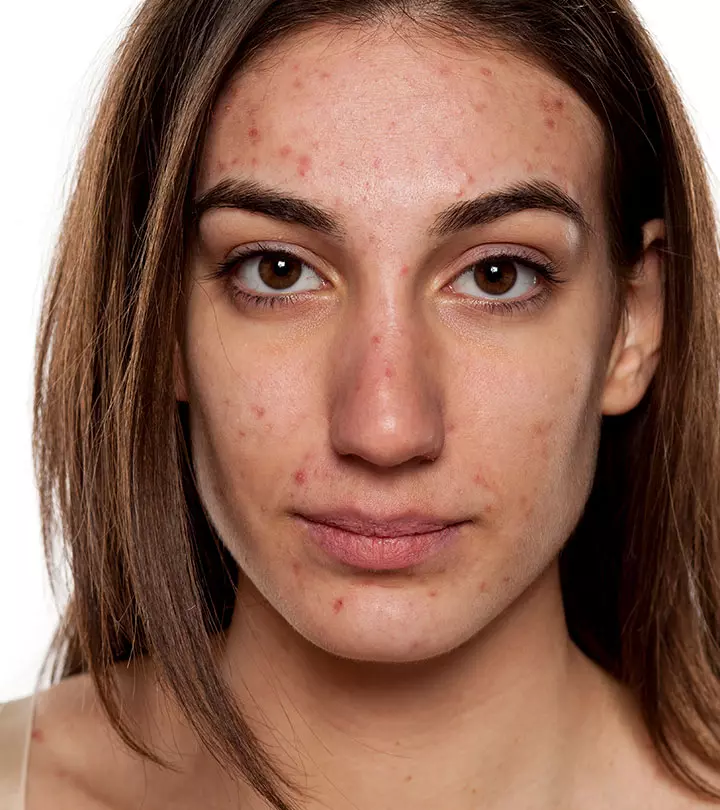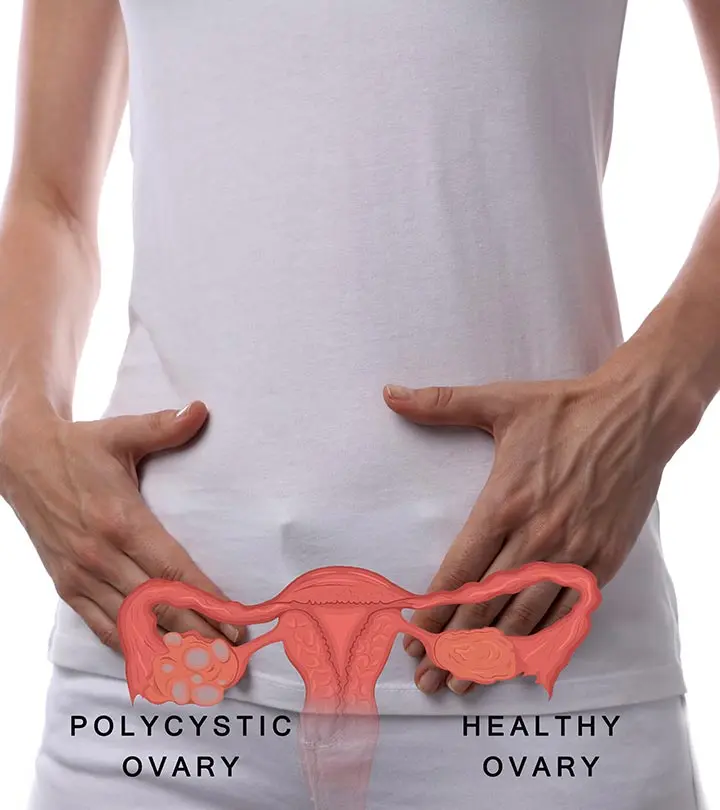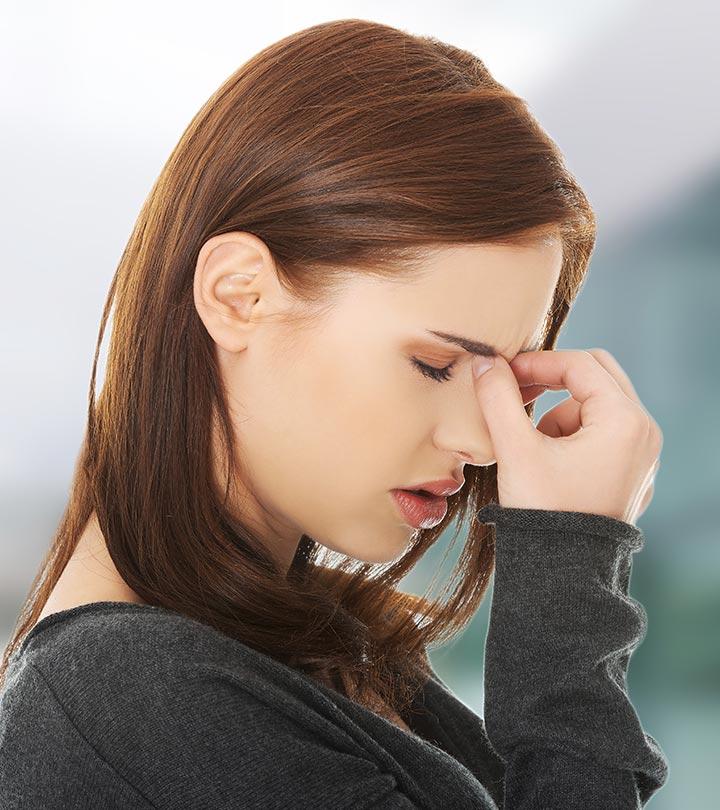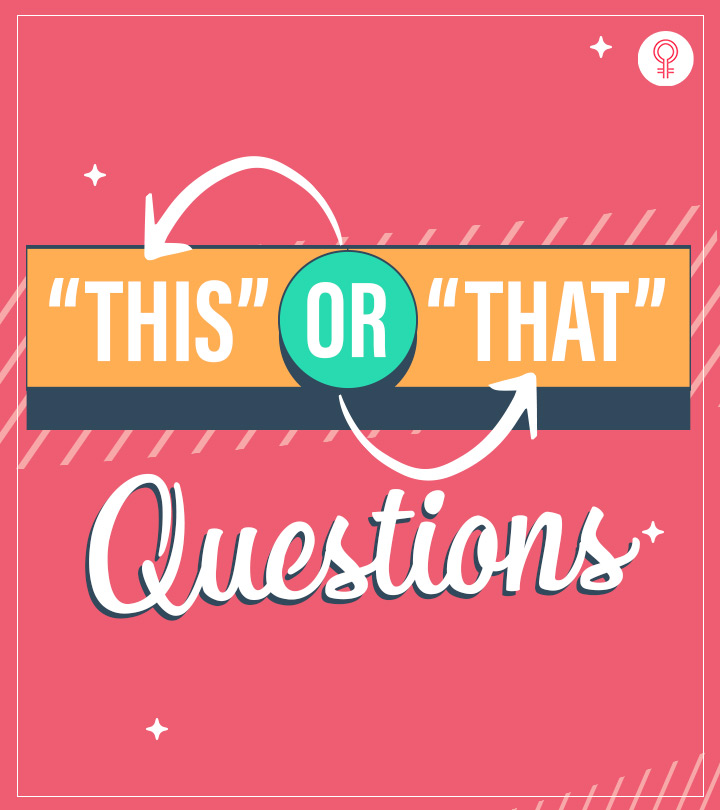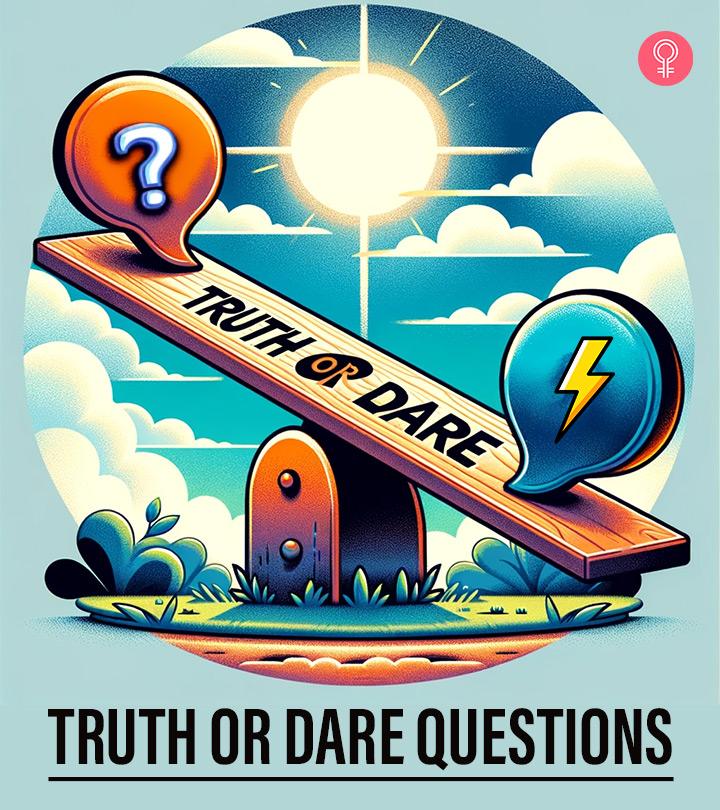Hormonal Acne: Causes, How To Treat It, And Foods To Avoid
Bid farewell to breakouts due to hormonal imbalances with effective treatment options.
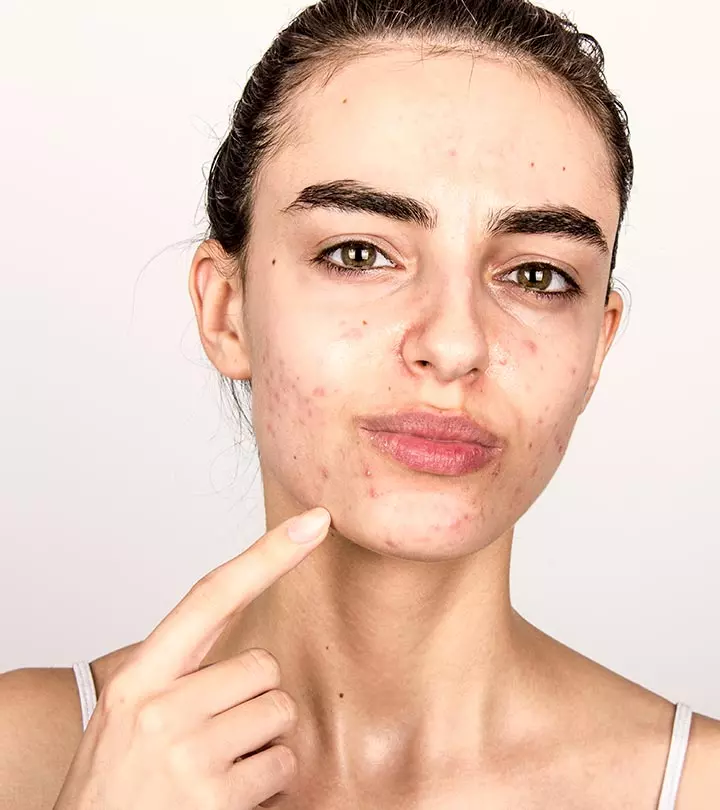
Image: Shutterstock
Most of us associate hormonal acne with puberty. However, it can chase you through your adulthood. Adult acne or hormonal acne has nothing to do with age. It shares a deep connection with the hormone levels in your body and can be quite stubborn.
Not all breakouts are caused by hormonal fluctuation. Therefore, if you are struggling with unexplained breakouts, it is crucial to understand if they are hormonal or not. This helps to determine the right treatment. Keep reading to understand everything about adult acne and its treatment.
In This Article
What Is Hormonal Acne?
When your hormone levels fluctuate, you get hormonal acne. Hormonal acne is much more common in adults than in teenagers.
Compared to men, this is more common in women as multiple factors, such as the menstrual cycle and menopause, affect the hormone levels in women. Hormonal issues associated with underlying medical conditions (such as Polycystic Ovarian Syndrome) may also cause hormonal acne.
The most common symptoms of acne include:
- Cysts
- Nodules
Both cysts and nodules are commonly seen in adults. The other less common symptoms include:
- Papules
- Pustules
- Whiteheads
- Blackheads
These are commonly seen in teens. When we talk about hormonal acne, it mostly refers to “cystic acne” in adults. While regular acne (like blackheads and whiteheads) are commonly seen in teenagers and are caused by hormonal factors, these are not considered “hormonal acne.”
Women may experience hormonal acne during pregnancy and menopause. The changes in the hormone levels make them break out.
 Quick Tip
Quick TipApart from hormones, several other factors that can cause hormonal acne.
What Are The Causes Of Hormonal Acne?
1. Stress
When you are stressed, your body increases the production of androgens (a group of hormones). These hormones stimulate the sebaceous glandsi XSmall oil-producing gland in the skin that produces natural oils or sebum to protect the skin. and your hair follicles, which causes acne. Therefore, it is extremely essential to figure out ways to stress management.
2. The Hair And Skin Care Products You Use
The chemicals in these products may clog your skin pores, treat your acne and cause acne. So, before you buy any hair care or skin care product, make sure that they are non-comedogenic and oil-free.
3. Side Effects Of Certain Medication
Certain medicines might trigger acne (such as lithium or an anticonvulsant). If you think that the medicines are causing acne, talk to your doctor immediately. If the medicines can’t be changed, consult a dermatologist to control your acne.
According to an international patient survey conducted on 2436 participants without acne and 1746 with acne, the use of oral contraceptives, anabolic drugs, and anti-depressants caused acne. As per the data, 39% of people with acne reported using oral contraceptives, 12% reported using anabolic drugs, and 16.7% reported using anti-depressants.
4. Underlying Medical Conditions
Underlying medical conditions (such as PCOS) may also trigger acne. Often, diagnosing and treating the condition clears the acne.
You can take medications, zinc supplements, vitamin A supplements or follow natural remedies to improve your condition.
How To Treat Hormonal Acne
Medicines To Improve Hormonal Acne
1. Birth Control Pills
Birth control pills are not merely hormonal contraceptives – they can also help in reducing acne breakouts.
A study conducted by the Cochrane Group examined 31 trials involving 12,579 women. The author of the study concluded that all combination contraceptive pills were effective in improving both inflammatory and non-inflammatory acne (1).
Another study found that contraceptives containing drospirenone were less effective in controlling acne than pills that had norgestimate (2).
However, birth control pills should be taken with caution. Always consult your doctor before taking any pills.
2. Retinoids
One of the best topical treatments to reduce hormonal acne is retinoids. If you have mild hormonal acne, you can use topical retinoids to improve your condition. Retinoids are derivatives of vitamin A and very effective in treating acne. They are mostly available as creams, lotions, and gels. However, the strength of the formula required to treat your acne, has to be determined by a doctor. Hence, avoid self-medication and do not start retinoid treatment without consulting a doctor.
The most commonly available topical retinoids include Adapalene, Tretinoin, retinol, and Retinaldehyde (3).
3. Androgen Receptor Blockers Or Anti-Androgen Medications
Both men and women have androgen (the male hormone) in their bodies, but an androgen excess can cause acne. This is because androgen increases the sebum production in your skin.
Several androgen receptor blockers have been used for controlling androgen-induced sebum production and acne. These are Spironolactone, Cyproterone acetate, and Flutamide (2). These drugs help in bringing down the levels of androgen. However, it’s better not to use androgen receptor blockers on men as they might cause erectile dysfunctioni XPersistent inability to attain or maintain an erection strong enough to engage in sexual intercourse. and gynecomastiai XExcessive growth of the breast glands in boys or men caused by hormonal imbalance or hormone therapy. .
4. Benzoyl Peroxide
Benzoyl peroxide has been used for treating acne for decades. It is one of the most popular choices for treating acne because of its antibacterial properties (it can kill P. acnes and S. aureus bacteria). It is moderately comedolytic (prevents comedones) and keratolytic (treat warts and lesions) (4).
If you are keen on trying natural remedies for acne treatment, I have got your back. These natural remedies may not be as effective as acne medications, but they do not have any side effects. Let’s check them out.
Natural Treatment Options For Hormonal Acne
1. Tea Tree Oil
Tea tree oil has an anti-inflammatory effect, which is beneficial in improving acne, especially mild to moderate acne. A randomized, double-blind, placebo-controlled study involving 60 patients found that 5% topical tea tree oil was effective in reducing acne inflammation by 43.64% (after six weeks of treatment) (5).
2. Green Tea
Green tea contains polyphenolsi XClass of plant-based compounds that include flavonoids, phenols, and other antioxidants. , which, when taken orally or applied topically, help to reduce sebum production and treat acne. In a single-blind randomized trial, researchers used 2% tea lotion for treating acne. 85% of the subjects experienced a significant reduction in acne (decreased by 50%), while 15% did not respond to treatment (6).
Self-care is equally important for improving acne. If you do not take care of your skin properly and neglect it, no medication can help. Here are a few tips you can follow to take care of your skin:
- Use a gentle cleanser to clean your skin twice daily. Do not overdo it as it can irritate your skin further.
- Always use warm water to clean your face or the affected area. Never use hot water.
- Avoid using scrubs on your face as the friction can worsen your inflammation.
- No touching, no picking – as doing so slows down healing.
- Avoid using makeup on your skin. However, if you are applying makeup, look for non-comedogenic products. Avoid using too much of the product.
 Did You Know?
Did You Know?Your diet is also linked to your acne condition. Though diet may not cause hormonal acne, it can definitely worsen it. Dietary fat and carbohydrates can increase your sebum production. It was found that people who followed a low glycemic diet did not suffer from acne (8). Also, using apple cider vinegar, turmeric, aloe vera, and witch hazel as spot treatments can provide relief and treat associated redness.
Hyaluronic acid, niacinamide, and vitamin C serums are a few other essentials that you can use to manage acne. Here is a list of foods you should avoid to prevent your acne from getting worse.
Hormonal Acne: Foods To Avoid
1. Refined Grains
It was found that people who consumed refined carbohydrates suffered from acne compared to those who did not (9). Consuming added sugar also exposes you to the risk of developing acne (10). Avoid these foods:
- Pasta (made with white flour)
- Cereals
- Bread (made with white flour)
- Aerated drinks, soda, and any sugary drink
- Sweeteners such as maple syrup, honey, and cane sugar
2. Dairy
There’s a link between milk and acne (11). While milk may not cause acne, it can worsen your existing acne. Milk also increases insulin levels (12). This can aggravate your acne. Avoid:
- Milk
- Other dairy products such as cheese and ice cream
3. Fast Foods
The Western diet is characterized by high intake of high calories, fat, and high GI foods (13). In a study involving 2,300 men, it was found that eating cakes, pastries, burgers, and sausages frequently increased the risk of acne (14).
4. Chocolates
There’s an ongoing debate on whether chocolate triggers acne or not. However, a study involving 25 acne-prone men found that consuming normal amounts of dark chocolate for four weeks caused acne flare-ups (15).
Wajeehamehmood, a blogger, shared her experience with hormonal acne and a few easy tips such as drinking enough water, showering daily, sticking to a daily schedule, not mixing too many types of food in one go, and limiting the amount of gas-forming foods. She also recommends getting some sunshine daily to refresh the skin and following a hormonal acne diet, adding, “Do not consume sugar or honey. Limit salt intake to 1/2 teaspoon daily… Consume a lot of green and yellow foods rich in vitamin A. Eat fruits and vegetables frequently, grains moderately, and nuts sparingly (Yes. You can have unsalted nuts occasionally, but never between meals) (i).”
Caring for acne-prone skin is a long-term commitment, especially if you have hormonal acne. Even if you notice improvement after using the doctor-prescribed treatment, lifestyle, and dietary modifications, you must stick to your routine. Diet changes and lifestyle modifications will definitely prove to be a boon. Following a healthy lifestyle and skin care routine goes a long way in preventing future breakouts and flare-ups.
Work with your doctor and nutritionist to set your nutritional goals, skincare routine, and frequency and dosage of oral medications, and stick to that routine. They might also suggest hormonal therapy for managing any sort of hormonal issues, so keep a track of all the recommendations. We hope this article has helped you understand everything you need to know about hormonal acne, acne prevention, and managing the condition.
Frequently Asked Questions
Is my acne bacterial or hormonal?
Hormonal acne is usually accompanied by other symptoms such as loss of hair or irregular periods. Bacterial acne may stem from hormonal acne as bacteria thrive in sebum-rich environments. An examination by a dermatologist is the only way to tell for certain whether the acne is hormonal or bacterial.
Which vitamin is best for hormonal acne?
Vitamin D and B-vitamins are helpful for hormonal acne.
Does hormonal acne go away?
Hormonal acne can be cured with medicinal treatment. If left untreated it may flare up from time to time but the symptoms usually start to alleviate after the age of 24-25.
At what age is hormonal acne worse?
Hormonal acne has the worst flare-ups from the time of teenage to early thirties.
Is benzoyl or salicylic better for hormonal acne?
Benzoyl peroxide helps soothe red and inflammation-prone skin making it ideal for treating hormonal acne. Whereas, salicylic acid can be beneficial for clearing up whitehead-prone skin.
Can exercise help with hormonal acne?
Exercise can help improve metabolic functions which can aid in regulating hormones. In this way, regular exercising may help with curing hormonal acne caused due to excess male hormones (15).
Are there any side effects of hormonal acne treatments?
Side effects of common medicinal hormonal acne treatments are vomiting, frequent urination, breast tenderness, headache, dizziness, and disruption in the menstrual cycle.
Key Takeaways
- Stress or PCOS (polycystic ovary syndrome) can cause hormonal acne.
- Birth control pills and anti-androgen medications can help reduce acne.
- Natural ingredients like tea tree oil and green tea may help improve acne.
- Avoid fast foods and dairy to reduce acne flare-ups.
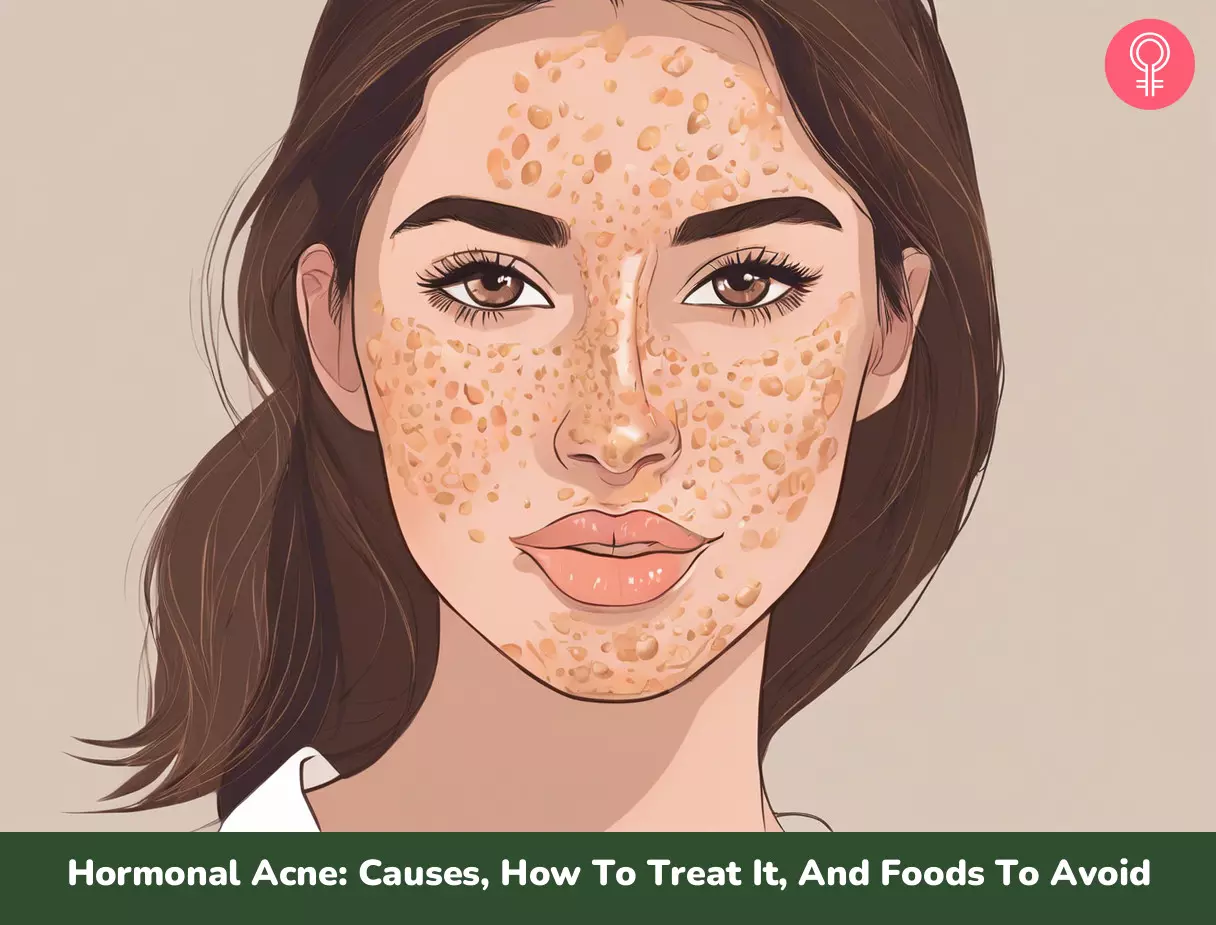
Image: Stable Diffusion/StyleCraze Design Team
Learn more about hormonal acne from an expert dermatologist. Watch the following video for comprehensive facts on what causes it, how to treat it, and how to prevent it.
Personal Experience: Source
StyleCraze's articles are interwoven with authentic personal narratives that provide depth and resonance to our content. Below are the sources of the personal accounts referenced in this article.
i. My hormonal acne journey: How I cleared my hormonal acnehttps://medium.com/@wajeehamehmood4/my-hormonal-acne-journey-how-i-cleared-my-hormonal-acne-261b0cbb9333
References
Articles on StyleCraze are backed by verified information from peer-reviewed and academic research papers, reputed organizations, research institutions, and medical associations to ensure accuracy and relevance. Read our editorial policy to learn more.
- “Effect of birth control pills..”, Cochrane
- “Hormonal Treatment of Acne in Women”, The Journal of Clinical and Aesthetic Dermatology
- “Acne Vulgaris..”, Indian Journal of Dermatology
- “Over-the-counter Acne Treatments”, The The Journal of Clinical and Aesthetic Dermatology
- “The efficacy of 5% topical..”, Indian Journal Of Dermatology, Venereology, Leprology
- “Green Tea and Other Tea Polyphenols..”, Antioxidants
- “Significance of diet in treated and untreated acne vulgaris” Advances In Dermatology And Allergology
- “The relationship of diet and acne”, DermatoEndocrinology
- “Differences in Dietary Glycemic..”, Journal Of The Academy of Nutrition and Dietetics
- “Acne: prevalence and relationship..” Journal of European Academy of Dermatology and Venereology
- “ Milk Consumption..”, Dermatology Online Journal
- “High intake of milk..”, European Journal of Clinical Nutrition
- “Dietary intervention in acne..”, DermatoEndocrinology
- “Acne..”, Journal of European Academy of Dermatology and Venereology
- “Dark Chocolate..”, International Journal of Dermatology
- A Systematic Review of the Effects of Exercise on Hormones in Women with Polycystic Ovary Syndrome
https://www.ncbi.nlm.nih.gov/pmc/articles/PMC7739243/
- “Effect of birth control pills..”, Cochrane
- “Hormonal Treatment of Acne in Women”, The Journal of Clinical and Aesthetic Dermatology
- “Acne Vulgaris..”, Indian Journal of Dermatology
- “Over-the-counter Acne Treatments”, The The Journal of Clinical and Aesthetic Dermatology
- “The efficacy of 5% topical..”, Indian Journal Of Dermatology, Venereology, Leprology
- “Green Tea and Other Tea Polyphenols..”, Antioxidants
- “Significance of diet in treated and untreated acne vulgaris” Advances In Dermatology And Allergology
- “The relationship of diet and acne”, DermatoEndocrinology
- “Differences in Dietary Glycemic..”, Journal Of The Academy of Nutrition and Dietetics
- “Acne: prevalence and relationship..” Journal of European Academy of Dermatology and Venereology
- “ Milk Consumption..”, Dermatology Online Journal
- “High intake of milk..”, European Journal of Clinical Nutrition
- “Dietary intervention in acne..”, DermatoEndocrinology
- “Acne..”, Journal of European Academy of Dermatology and Venereology
- “Dark Chocolate..”, International Journal of Dermatology
- A Systematic Review of the Effects of Exercise on Hormones in Women with Polycystic Ovary Syndrome
https://www.ncbi.nlm.nih.gov/pmc/articles/PMC7739243/





